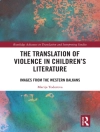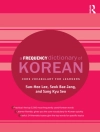Until recently, the history of debates about language and thought has been a history of thinking of language in the singular. The purpose of this volume is to reverse this trend and to begin unlocking the mysteries surrounding thinking and speaking in bi- and multilingual speakers. If languages influence the way we think, what happens to those who speak more than one language? And if they do not, how can we explain the difficulties second language learners experience in mapping new words and structures onto real-world referents? The contributors to this volume put forth a novel approach to second language learning, presenting it as a process that involves conceptual development and restructuring, and not simply the mapping of new forms onto pre-existing meanings.
Cuprins
1. Introduction: Bilingualism and Thought in the 20th Century – Aneta Pavlenko
2. Cognitive Restructuring in Bilingualism – Panos Athanasopoulos
3. Language-specific patterns in event construal of advanced L2 speakers – Barbara Schmiedtová, Christiane von Stutterheim, Mary Carroll
4. Language-specific patterns in event conceptualization: Insights from bilingualism – Emanuel Bylund
5. Thinking, speaking, and gesturing about motion in more than one language – Marianne Gullberg
6. The art and science of bilingual object naming – Barbara C. Malt and Eef Ameel
7. (Re-)naming the world: Word-to-referent mapping in second language speakers- Aneta Pavlenko
8. Thinking and speaking in two languages: Overview of the field – Aneta Pavlenko
Despre autor
Aneta Pavlenko is Research Professor of Applied Linguistics at the University of Oslo. Her research examines the relationship between multilingualism, cognition, and emotions. She has testified in court as an expert in forensic linguistics, lectured widely in North America, Europe and Asia, and authored more than a hundred articles and ten books, the most recent of which is The bilingual mind and what it tells us about language and thought (Cambridge University Press, 2014). She is former President of the American Association for Applied Linguistics and winner of the 2006 BAAL Book of the Year award and the 2009 TESOL Award for Distinguished Research.












